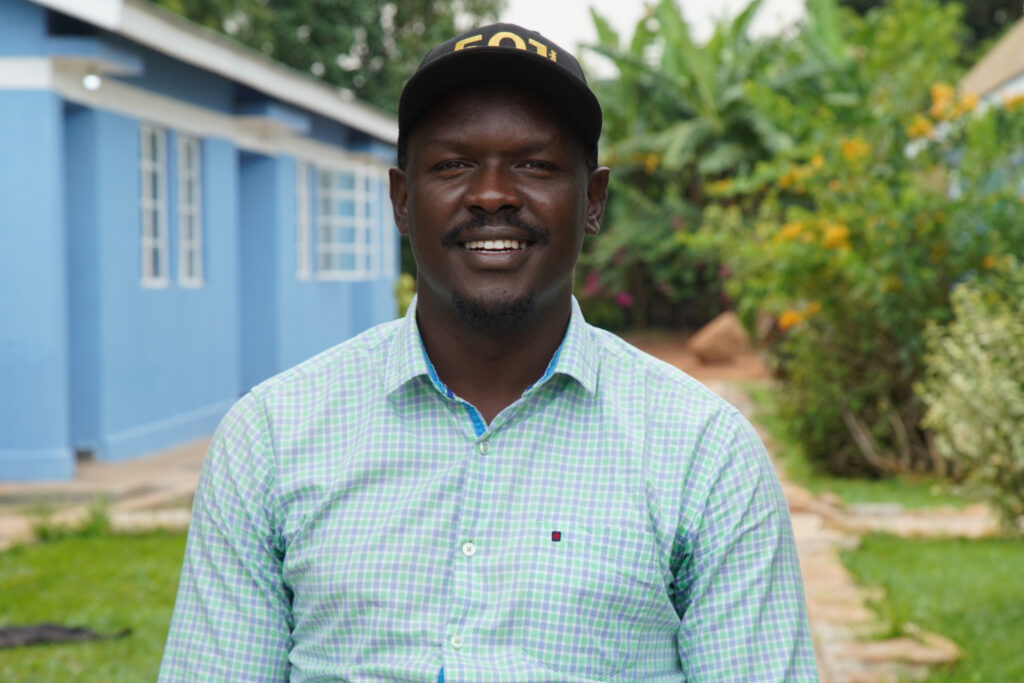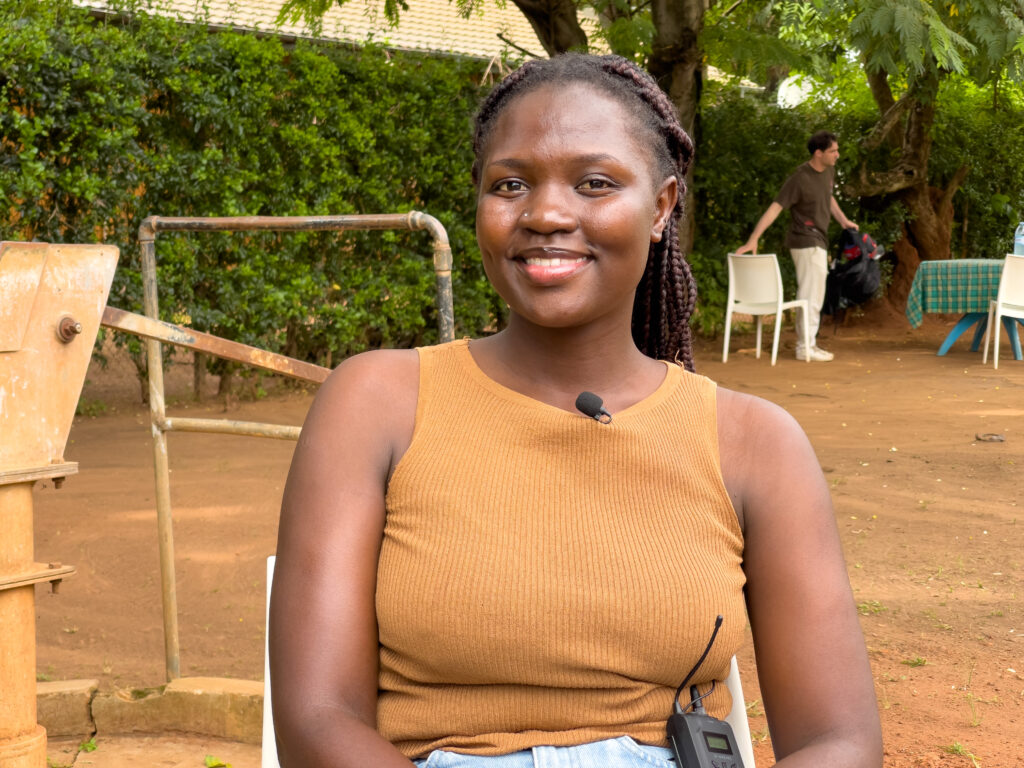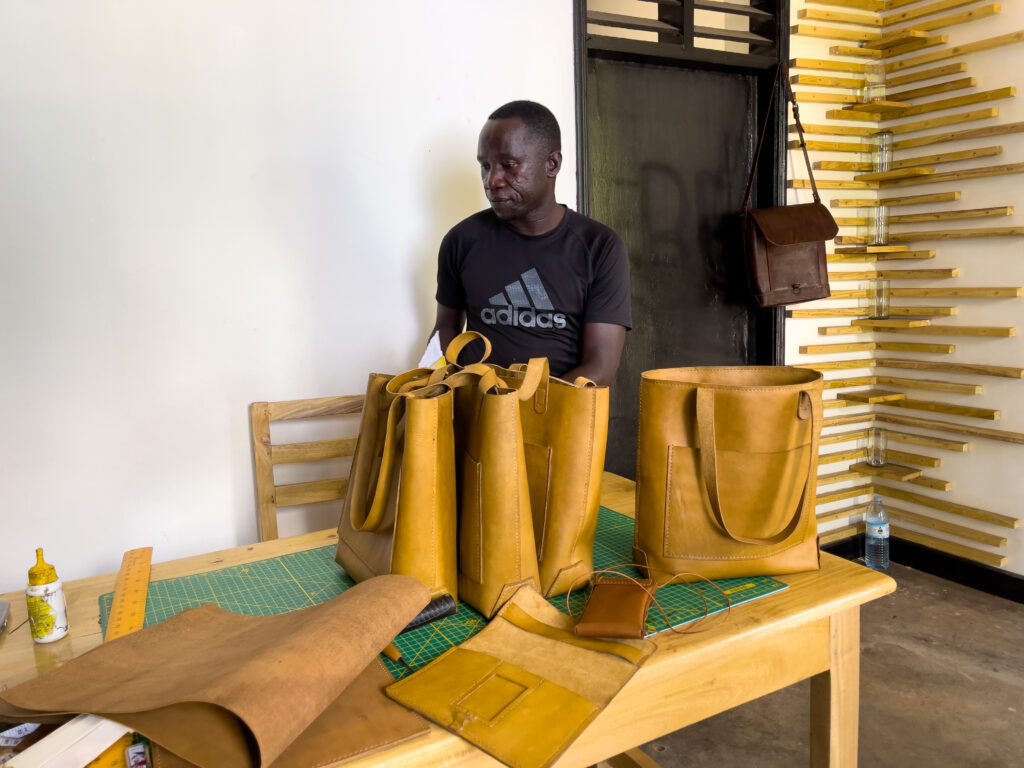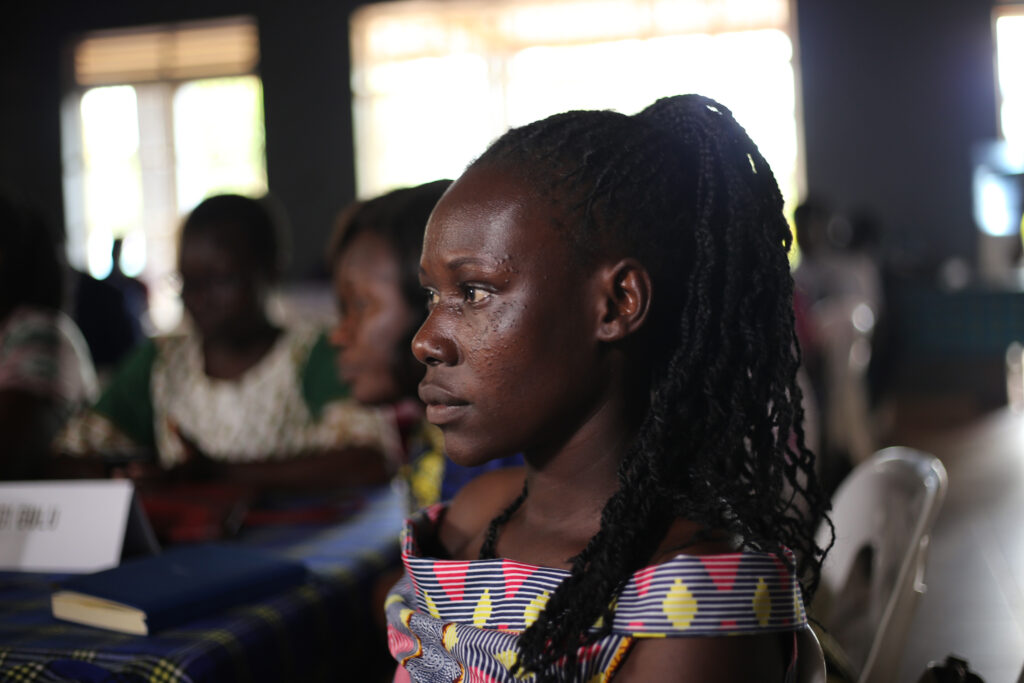Innovation for Stability:
How innovation centers are curbing rural-urban migration
Written by: Rhonet Atwiine. Filmed by Richard Mugambe. Documentary by Hellen Kabahukya.
Written by: Rhonet Atwiine. Filmed by Richard Mugambe. Documentary by Hellen Kabahukya.
In Uganda’s northern city of Gulu, young entrepreneurs, social workers and innovators are building a self-help infrastructure to nurse and retain local talent after realizing that many of their colleagues, smart enough to drive postwar economic recovery, are migrating.
They have turned Elephante Commons–a charity-run social enterprise, which includes office spaces, an auditorium, and a restaurant–into a melting point of ideas and opportunity where they map and tailor innovations according to various community needs.
“We feel that for someone to be able to put their heart into whatever they are building, they should have a lived experience. And thus, we are controlling brain drain,” says Jacob Odur who coordinates the space.

Jacob Odur, the Communications Director at Elephante. Photo by Richard Mugambe.
Odur runs Elephante with Quinn Neely, an American national who moved to the budding city in 2008 as a tourist but got thrilled by “the untapped potential among young people” from communities that were raising out the over 20 years of the Lord’s Resistance Insurgency.
“Elephante started as a restaurant where people could just come, sit, and eat. But later on, my wife and I realized that our friends in the community were struggling to find spaces that provide resources and support to foster their local initiatives. So what was a restaurant turned into an innovation hub,” Neely says.
Neely opened the Elephante gates in 2018, challenging the idea that incubation centers are a reserve of the country’s capital Kampala, where up on, most young innovators would only access innovation ecosystems only if they moved there.
For Gloria Adyero, 26, her cultural tourism start-up, Loremi Tours, would perhaps be at the initiation stage if it weren’t for the support system created by the space.
The graduate of Bachelor of Tourism and Hospitality notes that the dream to build a local tourism agency that leverages on community unique value props didn’t make sense until she decided to leave Kampala for Gulu, “to get closure to the community I wanted to showcase ”.
“I have never been stuck in this space. Being part of this vibrant network of like-minded individuals who have experienced the journey has been an invaluable resource,” Adyero says.

Gloria Adyero, the Founder of Loremi Tours. She is an innovator at Elephante. Photo by Richard Mugambe.
Gulu city has risen from the ruins of a two-decade insurgency into a regional commercial hub. The conflict by world’s number one fugitive, Joseph Kony displaced over 2 million people and caused widespread destruction. This caused many of its people to scatter across the country.
According to Odur, the social enterprise has succeeded at holding onto the talent, which has been leaking out of the region.
“Our partners are building businesses that tap into the local talent pool, creating opportunities right here in the region. And young people are realizing that they don’t need to flock to Kampala, because the same resources they find there are right here in Gulu,” he explains.
By offering local entrepreneurs the tools, and a resource infrastructure, they longer feel compelled to move to larger cities like Kampala to pursue their ventures.
This shift in mindset allows individuals to see the potential and opportunities available within their own communities, leading to a reduction in the migration of talent and innovation to urban centers.
“We want everyone here to grow. We want to avoid that brain drain. We want everyone here to see Northern Uganda get better,” Quinn passionately states.
Besides providing space for innovators, they are provided with mentorship for nine weeks. According to Jacob, the mentorship holds particular significance in fostering a thriving entrepreneurial ecosystem.
“Innovators come with ideas, but at times there is a need to polish and conceptualize them. At the end of the mentorship, all of them have a clear idea and a plan of execution,” Neely says.

An innovator prepares handmade leather bags for the market at Elephante. Photo by Richard Mugambe.
By connecting local talents with investors and mentors, the Elephante catalyzes the growth of businesses with the potential to bring transformative change to the region, as Jacob explains.
“We ensure that the products made get a market both locally and internationally. Locally, the products are sold at our cafe, and internationally, the products are shipped to countries like Germany and US,”says Odur.
Since its inception in 2014, the organization has partnered with 32 early-stage innovations, each employing over five people from the north. In addition, it has groomed over 10 innovations outside the space and now these are able to operate independently and on a large scale.
The youths through local innovations are making unique contributions to the region. The impacts are multifaceted, ranging from creating direct employment for thousands of people to initiatives like “Taka Taka Plastic,” which recycles tons of plastic waste. Notably, many entrepreneurs who pass through Elephante Commons stay rooted in Gulu, contributing to the community’s growth and development.
“Among all our partners, none has opted to leave for the capital ever again. We are proud of this, but rather to expand the businesses to serve the markets in other cities” Neely emphasizes.

Young people in a focus group discussion. Courtesy Photo.
Along the innovation empowering journey, the young people in this Gulu still think a lot has to be done to boost incubation.
In order to dig deep into the situation, Solutions Now Africa reporters conducted a focus group discussion to understand the aspirations of the region’s “young and energetic” on the possibility of exploiting opportunities within as opposed to moving elsewhere.
The discussion group aimed to gain insights into the motivations behind their desire to migrate and the emotional and practical factors that would influence this life choice.
“The reason why I looked for a job outside Gulu was to get exposure and new experience. I got to acquire new skills and interact with different people whom I am sure I would not have met if I stayed here.” Says Patrick Uma, a freelance journalist.
They also cite resources and infrastructure as major constraints to the entrepreneurial aspiration as one of the reasons that would cause an exodus from the region. However, Quinn remains optimistic, believing that as businesses expand and the market develops, an ecosystem of support will emerge.
© 2022 - Media Challenge Initiative | All Rights Reserved .
© 2022 - Media Challenge Initiative | All Rights Reserved .